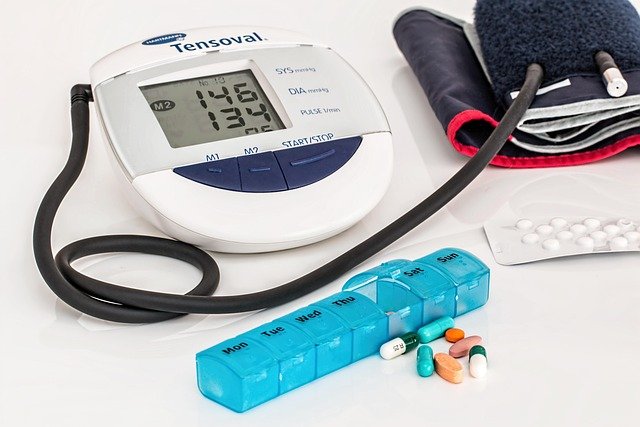Early Signs Of Congestive Heart Failure – Take A Look
Many people ignore the first subtle signs of heart problems, thinking it’s just fatigue or stress. But when your heart valve begins to fail, small warnings can mean big risks. Recognizing these early signals could help you act in time and protect your health.

Strange fatigue and shortness of breath: are they warning signs of heart failure?
Unusual fatigue that persists despite adequate rest is often one of the earliest signs of congestive heart failure. This isn’t ordinary tiredness after a busy day—it’s a profound exhaustion that doesn’t improve with sleep and may worsen with even minimal physical activity. When your heart struggles to pump efficiently, it can’t deliver sufficient oxygen-rich blood to your muscles and tissues, leaving you feeling chronically tired.
Shortness of breath, or dyspnea, represents another critical early warning sign. You might notice difficulty catching your breath during activities that never troubled you before, like climbing stairs or walking short distances. Some people experience orthopnea—shortness of breath when lying flat—which often forces them to sleep propped up on pillows. This happens because fluid accumulates in the lungs when the heart isn’t pumping effectively. If you find yourself suddenly needing more pillows to sleep comfortably, this subtle change warrants medical attention.
Swollen ankles and weight gain overnight – why your heart might be to blame
Edema—swelling in the lower extremities—often signals that your heart isn’t pumping effectively enough to maintain normal circulation. When the heart weakens, blood moves through the body more slowly, allowing fluid to accumulate in tissues, particularly in the ankles, feet, and legs. You might notice that pressing on the swollen area leaves a temporary indentation, called “pitting edema.”
Unexplained weight gain, particularly rapid gains of 2-3 pounds overnight or 5 pounds in a week, often indicates fluid retention due to heart failure. This weight gain doesn’t result from dietary changes but from your body’s inability to eliminate excess fluid. You might notice your shoes feeling tighter or rings becoming difficult to remove. This fluid retention occurs because the kidneys, which filter waste and regulate fluid balance, receive less blood flow when the heart weakens, causing them to retain more sodium and water in an attempt to increase blood volume.
Silent symptoms most people overlook before a heart valve problem strikes
Heart valve problems frequently contribute to heart failure and often present with subtle symptoms that people easily dismiss. Persistent coughing or wheezing that doesn’t improve with standard treatments might indicate fluid buildup in the lungs due to heart valve dysfunction. This cough may worsen when lying down and might produce white or pink-tinged mucus.
Irregular heartbeats, palpitations, or heart racing sensations can signal valvular problems or other heart conditions that eventually lead to heart failure. Many people experience occasional heart flutters, but persistent arrhythmias warrant medical evaluation. Additionally, decreased alertness and confusion in older adults can result from reduced blood flow to the brain when heart valves aren’t functioning properly. Family members might notice personality changes, memory problems, or difficulty concentrating before other symptoms become apparent.
Everyday habits that could make early heart failure harder to detect
Certain lifestyle factors can mask or exacerbate heart failure symptoms. Regular alcohol consumption can temporarily reduce swelling and urination, potentially hiding fluid retention symptoms. Similarly, heavy salt intake increases fluid retention, making it difficult to distinguish between dietary-related swelling and heart failure edema.
Sedentary lifestyles pose a particular challenge for symptom recognition. People who rarely engage in physical activity might not notice declining exercise tolerance until symptoms become severe. Without the context of regular exertion, breath shortness might only become apparent during unusual activities like rushing to catch a bus or during inclement weather.
Self-medication with over-the-counter medications can inadvertently worsen heart failure or mask important symptoms. NSAIDs can increase fluid retention, while decongestants might increase heart rate and blood pressure. Certain herbal supplements and energy drinks containing stimulants can strain an already compromised cardiovascular system, potentially accelerating heart failure progression while masking symptoms.
When to seek medical help: spotting the difference between stress and heart issues
Distinguishing between anxiety-related symptoms and heart problems can be challenging. While both conditions can cause rapid heartbeat, chest discomfort, and breathing difficulties, heart failure symptoms typically worsen with physical exertion and improve with rest, while anxiety symptoms often occur regardless of activity level and may intensify during stressful situations.
Timing and circumstances provide important clues—heart failure symptoms generally develop gradually over weeks or months, while panic attacks occur suddenly and resolve relatively quickly. Heart-related shortness of breath typically worsens when lying flat and improves when sitting upright, a pattern not typically seen with anxiety.
If you experience chest discomfort, severe shortness of breath, fainting, or severe weakness, seek emergency care immediately. For less urgent but persistent symptoms—unusual fatigue, mild breathing difficulties, swelling, or unexplained weight gain—schedule an appointment with your healthcare provider promptly. Remember that early detection and treatment dramatically improve outcomes for heart failure patients.
Conclusion
Recognizing the early warning signs of congestive heart failure can make a significant difference in treatment outcomes. From unusual fatigue and breathing difficulties to subtle fluid retention and overlooked valve symptoms, your body provides important signals when your heart begins to struggle. By understanding these warning signs and seeking prompt medical attention, you can access treatments that may significantly slow disease progression and improve your quality of life. Heart failure, while serious, can be effectively managed with proper medical care, particularly when caught in its early stages.
This article is for informational purposes only and should not be considered medical advice. Please consult a qualified healthcare professional for personalized guidance and treatment.




